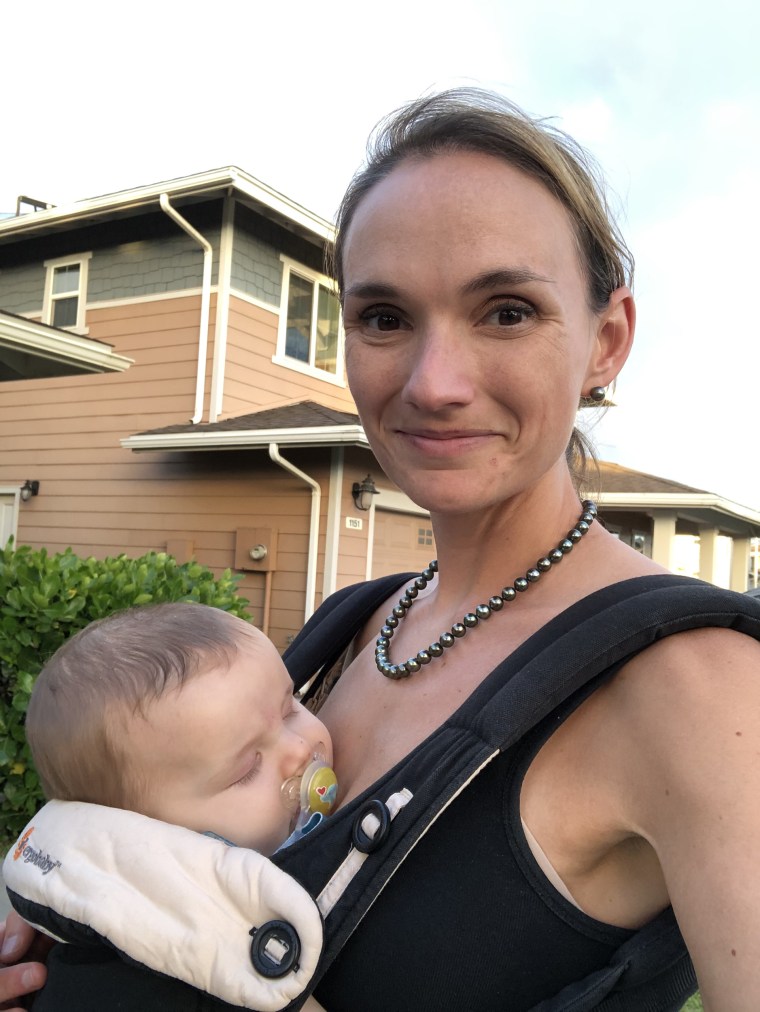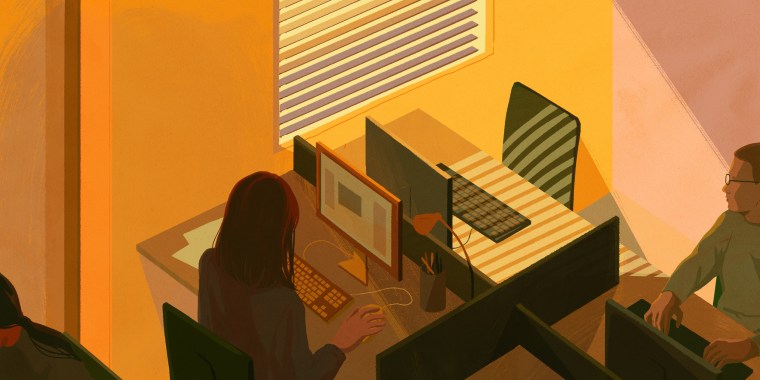There’s a model — pretty, young, Asian, smiling — who appears, usually hiking, in every visitor publication in Hawaii. I had a running joke about how ubiquitous this model was with a former coworker when I was the editor for several visitor magazines in the Aloha State. We saw her everywhere, even in our own pages. When I saw this same smiling and hiking woman years later in a brochure in the Pacific Northwest, long after I'd left both the job and Hawaii, I laughed. I went to LinkedIn to message my old coworker a picture of the brochure I’d spotted her in, but soon realized his profile was inactive.
After a quick online search, I found his obituary. He’d died 18 months earlier at 48 years old. The print text was just over one line, the type of copy he’d hate to lay out. He detested a widow.
I worked with this man for two years, starting when I landed the role as editor of five tourist magazines with no knowledge of publishing and no paid writing jobs on my resume. Unqualified is an understatement. He was my always exasperated production manager.
He lived in Hawaii his whole life, spending much of his youth on Lanai — the speck of an island whose sole purpose for a time was growing pineapples, but for several decades has had little to no industry or tourism. There’s not much to do there aside from taking the ferry over to neighboring Maui. He told me as a kid, he’d use the long grass to make a noose for catching geckos.
To say we were friends would be a stretch. I rankled him. He would send me passive-aggressive or sometimes aggressive-aggressive emails, always late at night, always bashful the next day.

I’m sure in a larger company with more than a handful of employees and an actual human resources department, he would have lost his job several times over. But we were a family, at least according to our CEO. A simple sorry was all it took to mend the fences, the same way my two young sons feign an apology when one of them swats at the other, brandishing the hard edges of a toy as a weapon.
Between brothers, hostility is forgiven. But what about coworkers? Part of the same “office ohana.” We buy into the fiction of a “family” composed of strangers who have the right professional qualifications to fit corporate needs. As if to justify the number of waking hours we spend with coworkers instead of our actual partners, children and extended family members.
Still, we make connections. It’s human. I am the product of a workplace romance. I’ve met some of my best friends at work. I feel genuine affection for my current boss. But it’s not a guarantee. Sometimes we’re forced to work with people we despise.
I assumed he hated me. We exchanged pleasantries in the office, sat in the same break room at lunch with coworkers to talk story. Yet underneath was simmering discord.
About a year into my tenure another coworker let me in on what should have been obvious: The man was an alcoholic. Everyone knew but me. His behavior could be erratic. His eyes were tinged yellow. It was the type of revelation that feels like learning the tooth fairy isn’t real. You realize the truth in a rush and feel foolish for believing the farce.
I guess it’s no surprise that he died young, or at least in middle age, though I can’t figure out how he died. His obituary didn’t say, and the few people I keep in contact with from that time don’t know. To my knowledge, he never had a partner or children to check with.
How are we supposed to feel about the passing of someone who was intimately a part of our lives, but not by choice?
How are we supposed to feel about the passing of someone who was intimately a part of our lives, but not by choice? During the time I worked with him, the owner of our company passed away unexpectedly. The whole office grieved. There was an immediacy to that death. But this man was no longer an active part of my life, and, by the time I found out, his death had happened more than a year before. I’m sure there’s a word in German for how this news should strike me. “Sad” doesn’t feel adequate. “Devastated” feels too strong.
Of all the moments with him that surprised me, possibly the most surprising was the time he seemed genuinely happy to see me. It was a few months after I quit that job to be a stay-at-home mom with my first son. I came into the office with my tiny baby to say hello and get a parking voucher in downtown Honolulu. He kissed my cheek in true aloha fashion and despite all the ways I’d failed him as an editor, his face lit up as he took in my baby and me, then asked how we were doing. That was the last time I saw him.
He messaged me on LinkedIn about a week before he died. I wonder if he was looking for a lifeline. The company we’d both worked for had collapsed, and I knew he was unemployed. He sent a simple message sharing a link for a podcast we both liked that made me smile and reply in kind. I didn’t give him another thought until I saw the face of a smiling, hiking, Asian woman I knew he’d recognize and decided to send a quick note. I knew he’d think it was funny.
If he was still alive, that is.
Now I sit feeling uncomfortable, somewhere between apathy and full-throated sorrow. My paltry human emotions are blurred by my inability to place this man in my life. I’ve heard that sometimes the emotional load of an acquaintance dying is almost as much as that of a close friend. We grieve the loss of possibility, but it’s too abstract to focus in on.
He wasn’t an easy man. I can’t offer effusive praise at his character in his passing. But I cared about him. I’m sorry he’s gone. Maybe that’s all there is to say.
